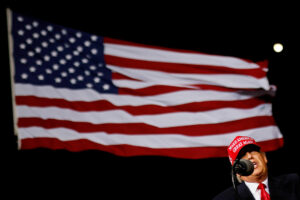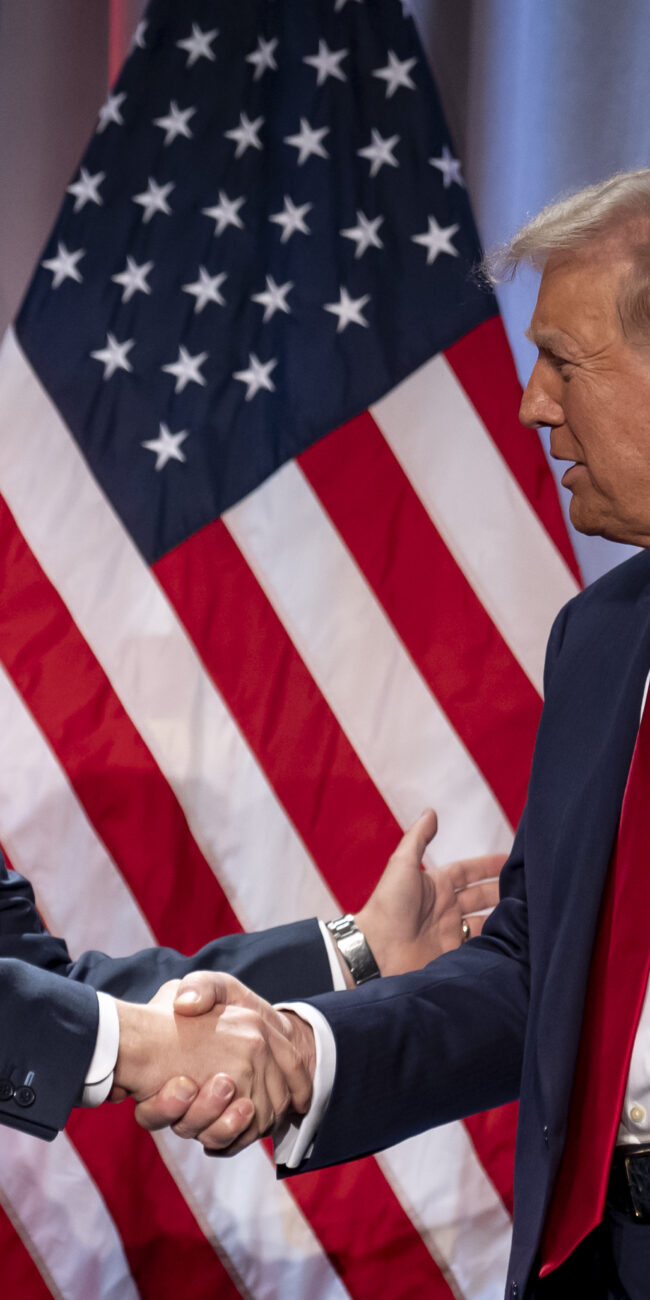
Trump win could pose risk to peso, other Asian currencies — analysts
By Luisa Maria Jacinta C. Jocson, Reporter
THE RETURN of Donald J. Trump to the US presidency could cause Asian currencies such as the Philippine peso to weaken, analysts said.
“We suspect Asian currencies would underperform under a Trump presidency, even if they don’t seem to have been affected worse than others by the apparent rise in his chances of winning lately,” Capital Economics said in a report.
The peso closed at P58.225 per dollar on Monday, strengthening by 9.5 centavos from its P58.32 finish on Friday.
Last week, the local unit fell to the P58-per-dollar level for the first time since Aug. 2.
“What’s more, that rise has coincided with an increase in the chances of a Trump election win, if prediction markets are to be believed. And his policies could be a particularly stiff headwind for Asia’s currencies,” Capital Economics said.
Republican nominee Mr. Trump has made stringent trade restrictions among his proposed policies, eyeing to impose tariffs of 60% or higher on all Chinese goods as well as a 10% or even 20% universal tariff.
Analysts noted the potential weakness of the peso amid a Trump presidency.
“If Republicans sweep elections, tariff hikes and closing of borders to immigrants can mean higher inflation and higher rates in the US, which can underpin US-dollar strength,” Bank of the Philippine Islands Lead Economist Emilio S. Neri, Jr. said.
Rizal Commercial Banking Corp. Chief Economist Michael L. Ricafort said markets are already pricing in a Trump victory, which had led to the strengthening of the US dollar versus other major global currencies.
“Any Trump victory could lead to higher US inflation amid possible trade war that could lead to higher tariff rates on imports from China and other countries, tighter immigration rules that could increase US labor costs, deficit spending on possible tax cuts and economic stimulus, among others,” he said.
Mr. Trump is up against Democratic candidate Vice-President Kamala Harris in the US presidential elections scheduled on Nov. 5.
“Any Trump presidency would lead to more protectionist policies that could potentially slow down global trade, similar to the first Trump administration, and could also slow down foreign direct investments, OFW remittances with tighter immigration rules,” Mr. Ricafort said.
Latest data from the local statistics authority showed the United States remained the top destination of Philippine-made goods in August. It recorded an export value of $1.22 billion, accounting for 18.1% of the total imports during the month.
In the first eight months, cash remittances expanded by 2.9% to $22.22 billion from $21.58 billion a year earlier. The United States accounted for nearly half or 41.3% of overall remittances during the period.
Capital Economics noted that Mr. Trump’s campaign rhetoric “probably may not translate directly into policy.”
“But tariffs are one of the easier parts of Trump’s agenda for him to enact. And the region’s central banks are unlikely to fight depreciation pressure if he does. So, our sense is that Asian FX (foreign exchange) could still be in for a tough ride if Trump were to prevail,” it added.

